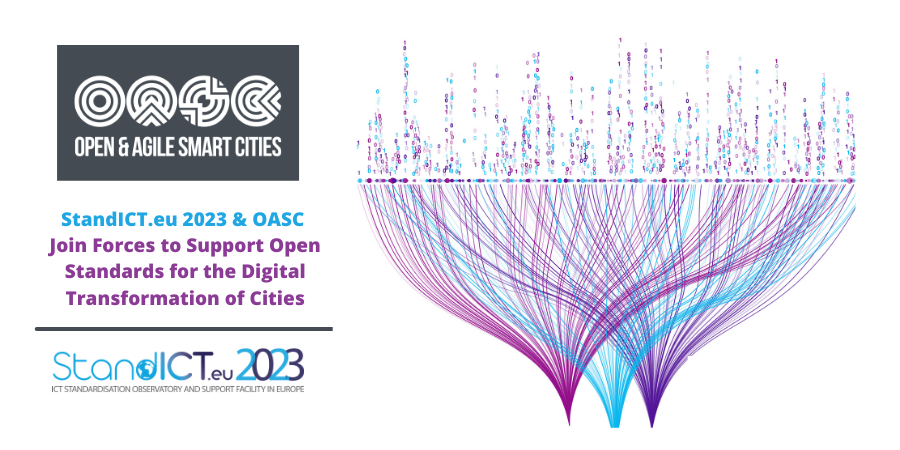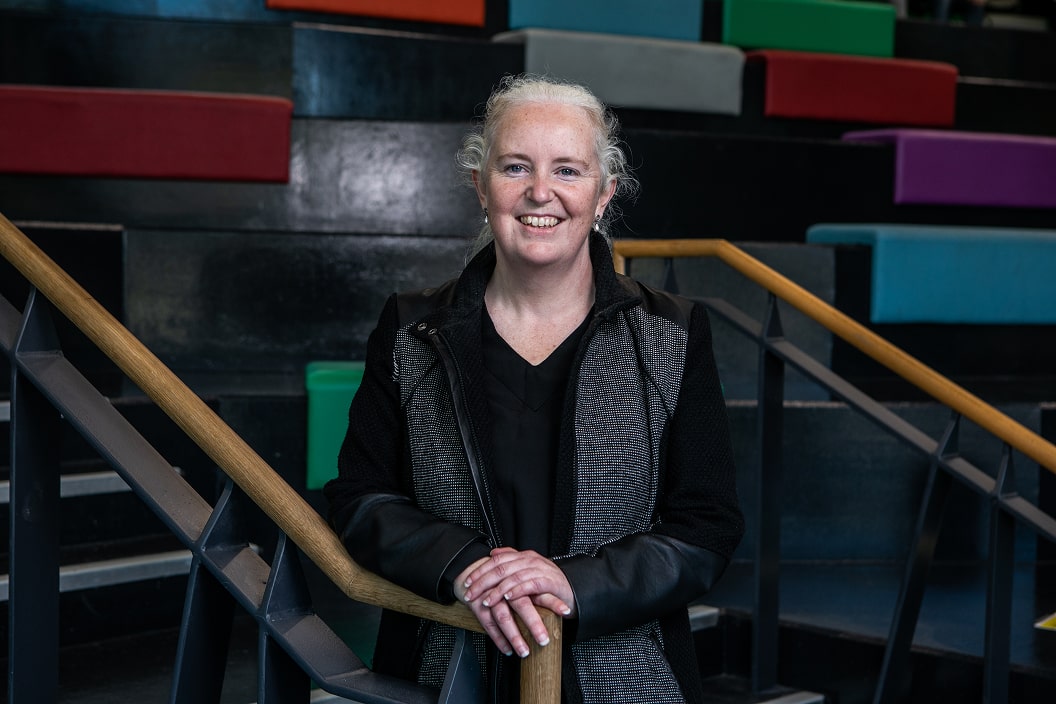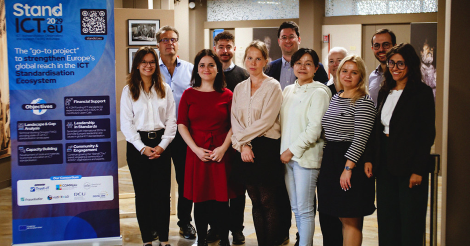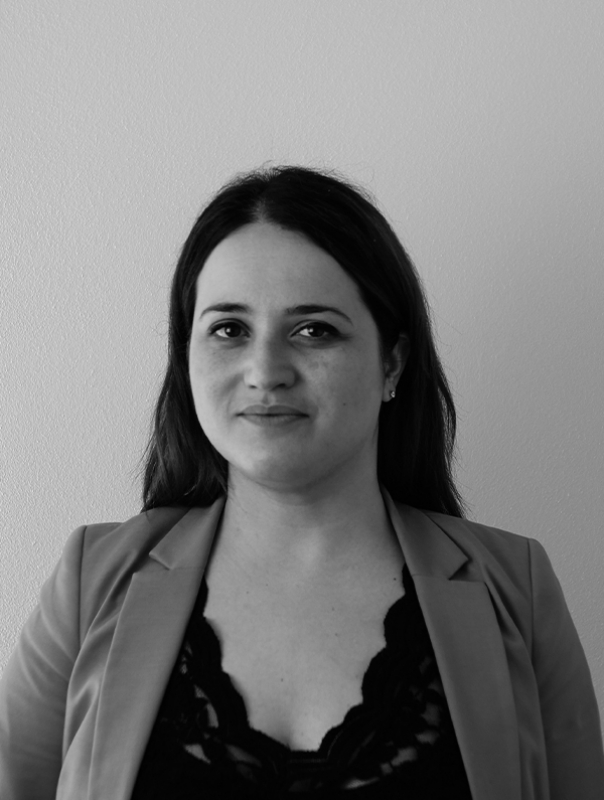Read time: 3 mins

StandICT.eu 2023’s mission is twofold: First, it funds European ICT experts through a series of Open Calls to participate in international Standardisation Developing Organisations Working Groups covering wide-ranging topics as defined in the Rolling Plan for ICT Standardisation[1] (such as 5G and fixed networks, IoT, Cybersecurity, Data, Cloud Computing, Quantum Technologies, AI, Blockchain, Smart Cities, Industry 4.0, and eHealth, etc). Second, StandICT.eu has recently released the “EUOS – Observatory for ICT Standardisation,”[2] an interactive platform that will monitor the global ICT Standardisation landscape, with the key focus to provide the community of ICT experts the most accurate coverage of relevant and timely ICT Standards.
Open & Agile Smart Cities (OASC) is a not-for-profit global network of cities and communities that embodies a singular, global, demand-side consensus on the minimal common ground, called Minimal Interoperability Mechanisms’ (MIMs), for exchanging solutions, services and data between, within, and with cities. The MIMs enable local levels to share and re-use digital and data-dependent solutions, thereby reducing the cost of innovation, increasing return on investment, and avoiding vendor lock-in – thanks to the use of open standards and APIs.
StandICT.eu considers this collaboration rewarding for the EUOS, that curates a repository of ICT standards across a variety of domains and hosts virtual working groups for all interested stakeholders with the aim of sharing insights from experts in ICT standardisation. OASC’s expertise in the open standards for smart cities will deliver valuable input for the landscape and gap analysis drafted at the EUOS Technical Work Group (TWG) on Smart Cities. At the same time, the OASC community of members and partners can provide recommendations and priorities enhancing Europe’s competitiveness in this dedicated field.
Davor Meersman, CEO of Open & Agile Smart Cities, states: “There are more than 10.000 standards available that are potentially relevant for cities, towns and rural areas. The importance of standards is only matched by the impossibility for cities and communities to keep track of it all. That’s why it’s critical to have a minimal common ground between local levels and that’s what we represent. OASC and its members look forward to supporting this endeavour with our collective knowledge and expertise.
"Smart Cities & Smart Living are now a cornerstone of the European Digital Single Market, as well highlighted by initiatives as the “Green Digital Charter” and the “Digital Transition Partnership of the Urban Agenda for the EU”. This standpoint is naturally mirrored within the StandICT.eu EUOS, where we created a tailored Working Group that aims at the delivery of a comprehensive landscape and gap analysis of the field. I am greatly confident that OASC members will provide an invaluable contribution in this regard and will greatly help us in this endeavor.” believes Francesco Osimanti, vice-coordinator of StandiCT.eu.
For more information & contact of the StandICT.eu:
Mail: info@standict.eu
Twitter: @Stand_ICT
LinkedIn: /company/standict-eu/
Website: www.standict.eu
For more information about OASC:
Mail: Geni Raitisoja, Manager, Comms & Media, geni@oascities.org
Twitter: @oascities
LinkedIn: /company/open-&-agile-smart-cities/
Website: oascities.org



